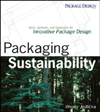British apple and pear group calls for task force on fresh produce packaging

(Courtesy of BAPL)
As the fresh produce industry, retailers and NGOs continue to explore ways to reduce plastic in the supply and sale of fresh produce, British Apples & Pears Limited (BAPL) has published a new report regarding potential solutions.
The report was written by Claire Donovan, a retail expert and experienced food production specialist. It summarizes the current single-use plastics position of retailers, UK regulators and NGO campaigners.
The BAPL Report into the Current Position of Single-Use Plastic Packaging in the UK Top Fruit Sector stresses the urgent need to create a cross-retailer/industry taskforce to find solutions for the sector. This is one of seven asks set out in the report that would support future efforts towards minimizing plastic pollution.
“There continues to be significant focus around the packaging of fresh fruit and vegetables in our retail outlets. There is a view from activists and some customers that packaging is unnecessary and should be removed,” the report states. “This view, however, may not consider the protective and shelf-life enhancing properties that much packaging gives. All the major retailers have established sustainable packaging aspirations and positions, and many state that concerns about plastic packaging dominate their customer communications.”
The report includes two intriguing tables. Table 1 is titled “Retail commitments to plastic reduction and elimination” and includes the commitments of such big-name retailers as Aldi, Lidl, Tesco and others.
Table 2 is titled “Outline of country and NGO commitments to removing plastics” and looks at the packaging goals of France, the EU and the UK Plastics Pact, among others.
In addition to pushing for the creation of a cross-retailer/industry task force, another key ask in the report is for the UK government to meet its commitment to consistent home/curbside collection and recycling infrastructure.
“This is a complex but important area of focus for UK apple and pear growers,” says Ali Capper, executive chair of BAPL. “We absolutely want to minimize plastic in the production and sale of British apples and pears, but we must fully consider the implications of proposed changes. We need to be especially mindful of keeping food waste to a minimum. We also need to ensure we’re not just moving environmental challenges from one part of the supply chain to another.
“This report is an important contribution to discussions, but most critical is that government, growers, NGOs and retailers come together now to work out the best possible solutions. That way the full implications and benefits of all approaches can be properly considered.”
Read the report.
Looking for a reprint of this article?
From high-res PDFs to custom plaques, order your copy today!









